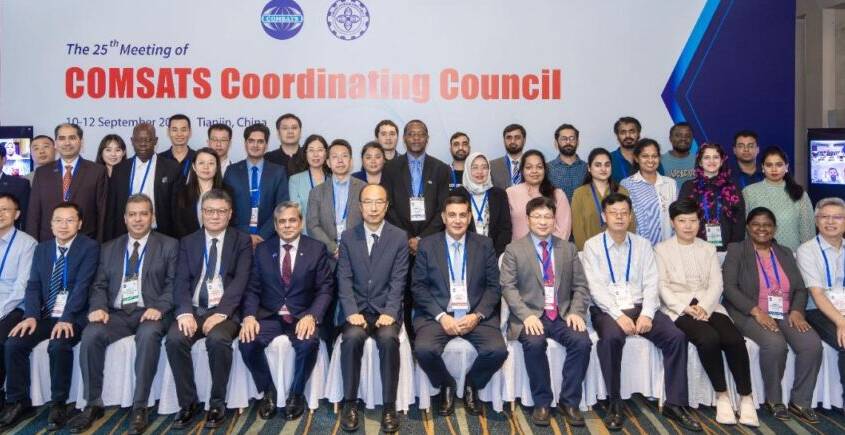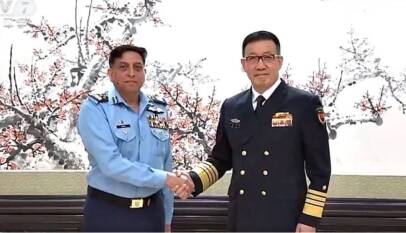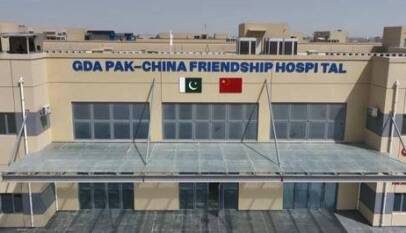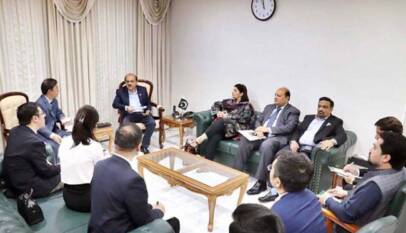China hosts 25th COMSATS Coordinating Council at Tianjin
The Tianjin Institute of Industrial Biotechnology (TIB) in China is hosting the 25th meeting of the Coordinating Council of COMSATS from September 10-12, 2024, focusing on international cooperation in science and technology. Participants include scientists and delegates from COMSATS’ Centres of Excellence and partner organizations. Key discussions highlight the importance of South-South cooperation, collective scientific efforts, and tech-based solutions for global challenges. The event includes a panel on biomanufacturing, coinciding with UN Day for South-South Cooperation.
ISLAMABAD: Tianjin Institute of Industrial Biotechnology (TIB) of China, is hosting the 25th meeting of Coordinating Council of the Commission on Science and Technology for Sustainable Development in the South (COMSATS), on 10-12 September 2024.
International cooperation in S&T took center-stage in Tianjin with the participation of scientists and delegates from COMSATS’ Centres of Excellence.
TIB, a member of COMSATS’ Network of Centre of Excellence, is a renowned and institute of Chinese Academy of Sciences (CAS). Members of COMSATS’ other statutory bodies and representatives of partner organizations are also participating in the meeting, including, ANSO, ECOSF, ICESCO, INSME, PIDF, South Centre, SESRIC and TWAS.
The inaugural ceremony was held on 10th September. Speaking at the occasion, Mr. DONG Keqin, Director, Division of Multilateral Cooperation, Ministry of Science and Technology, China, stated that South-South Cooperation is an indispensable part of international multilateral development cooperation and an important channel for developing countries to achieve self-reliance and progress. He expressed pleasure on collaborating with COMSATS for achievement of common objectives.
Prof. Dr. Liu Weidong, Director-General, Bureau of International Cooperation, Chinese Academy of Sciences (CAS), China, highlighted that the Global South is faced with various challenges. He informed that as a leading national institution, CAS attaches high importance to international cooperation. Prof. Liu, being the incumbent Executive Director of ANSO, also highlighted the key activities of ANSO and its collaboration with COMSATS.
Prof. Dr. Ashraf Shaalan, Chairperson, COMSATS Coordinating Council from National Research Centre (NRC), Egypt, stated that COMSATS Member States have the capacity to develop scientifically which is a noble cause and financial resource constraint should not be an impediment.
He highlighted that COMSATS Centres of Excellence are actively collaborating with each other in various fields, and much more can be achieved by capitalizing on collective efforts.
He urged greater and more focused cooperation among the COMSATS Centres of Excellence. He identified low-emission transportation, climate change and renewable energy as NRC’s areas of interest to benefit from South-South and Triangular Cooperation in the long term.
Ambassador Dr. M. Nafees Zakaria, Executive Director COMSATS, stated that inventions and knowledge have brought a windfall of wealth to the technologically advanced nations in the Global North.
He said that universalization of technologies and knowledge was the only way to disallow those with upper hand in technology from exploiting it to their advantage. He appreciated the Chinese Leadership, President Xi Jinping, who, at a BRI event, undertook that China will share its technologies and knowledge with everyone’.
Ambassador Zakaria highlighted that during the past two years, COMSATS cultivated strategic partnerships, supported important R&D projects and innovative initiatives in emerging S&T areas. He underscored that the pooling of resources and sharing of expertise among COMSATS nations as key to the collective success. He called for more investment in R&D, which created a defining line between the developed and developing worlds.
Prof. Dr. XIANG Hua, Legal representative, Deputy Director-General, TIB, highlighted that TIB specializes in synthetic biology and biomanufacturing, and has built a strong reputation for biotechnology development and transfer.
He informed that many green bioprocess technologies developed have been successfully industrialized, significantly advancing the bioeconomy in China across various fields. He expressed pleasure on hosting the Council meeting, hoping to further enhance TIB’s collaboration with other Network members.
This major platform for South-South scientific cooperation is deliberating upon a 13-point agenda, inter alia, focusing on fostering collaborative research and development projects, capacity building programmes, and developing tech-based solutions for addressing various global challenges.
A panel discussion on Biomanufacturing Cooperation for a Better Tomorrow in the Global South is being held in conjunction with the Council meeting on 12th September, which is UN Day for South-South Cooperation, giving the events a befitting conclusion.
China to set up technical centre for youth
ISLAMABAD – In a meeting between Secretary of Education Mr Mohyuddin Ahmad Wani and …











